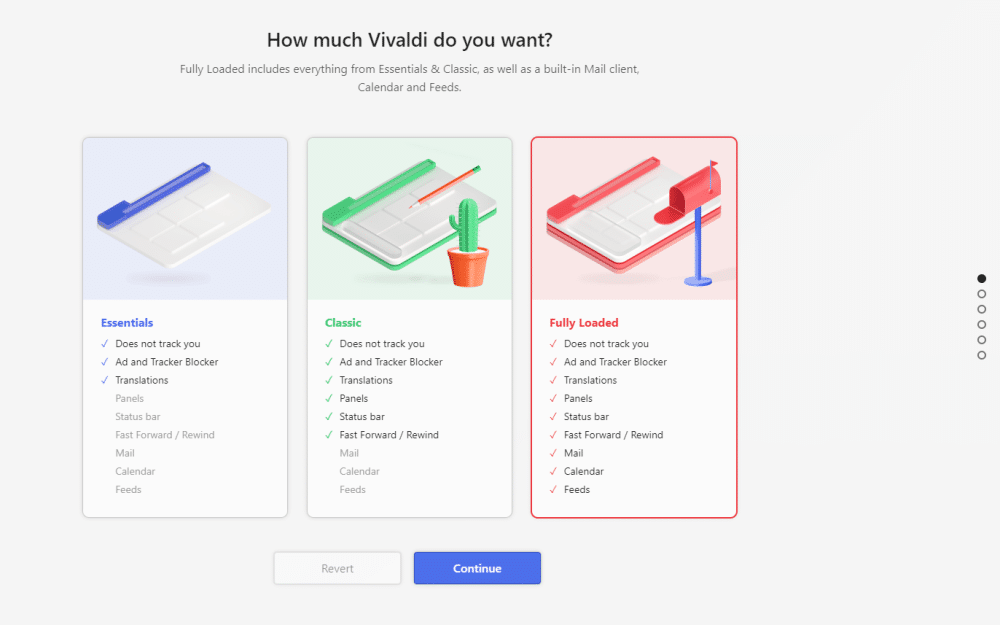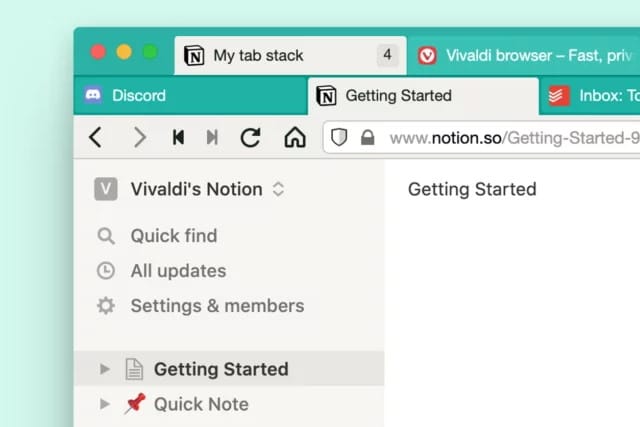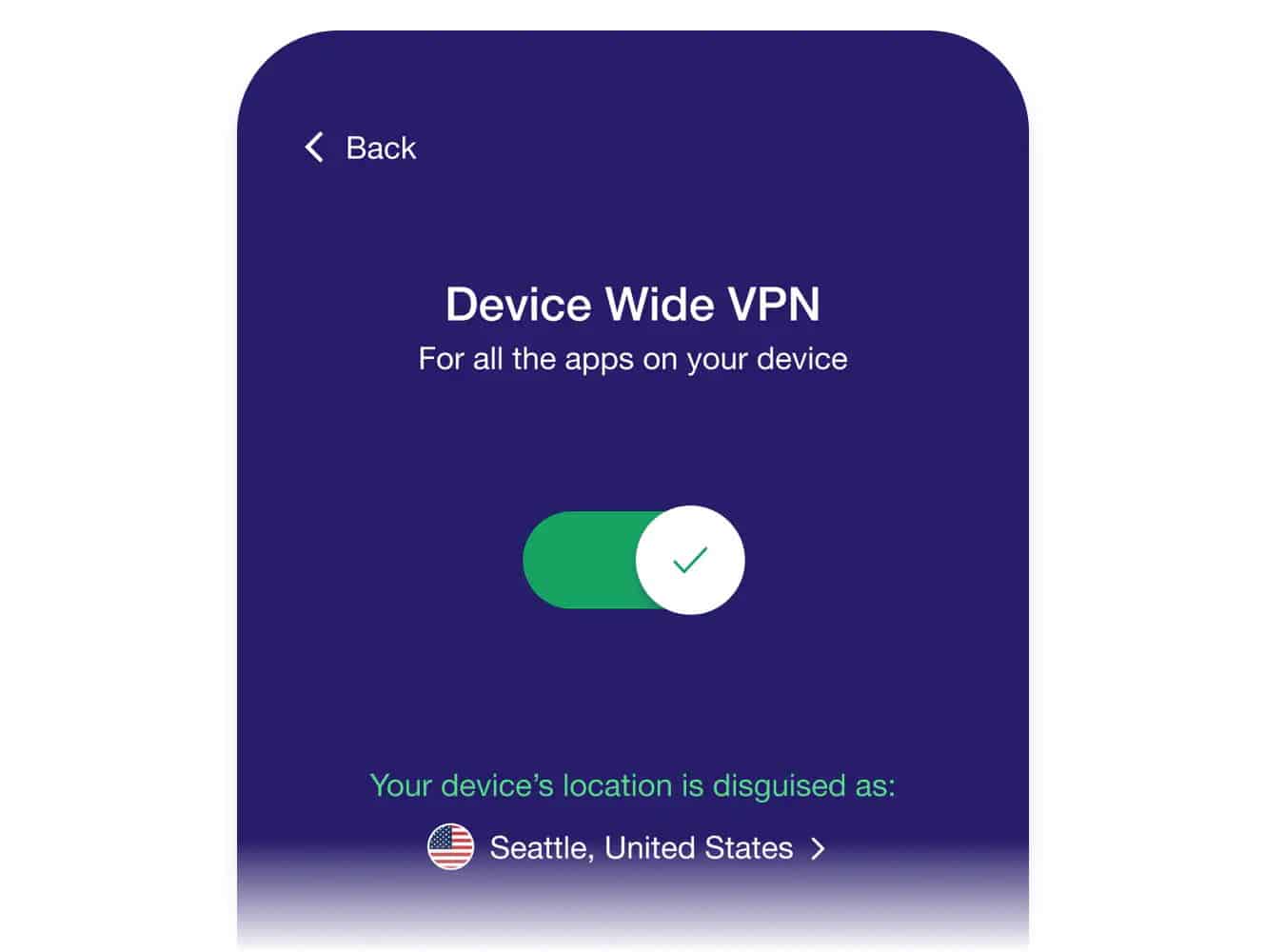
Vivaldi 4.0 adds privacy-focused translation tool plus built-in mail, calendar and feed reader clients
Big tech takes an ever-increasing role in our lives, with Google and Amazon in particular seemingly insatiable when it comes to dangling more exciting new services in front of us in exchange for another slice of our privacy. If you’re looking for ways to fight back, then Vivaldi Technologies' latest browser release should interest you.
Billing itself as a "real alternative to Big Tech", Vivaldi 4.0 arrives packed with yet more privacy-first tools, including beta releases of built-in mail client, calendar tool and feed reader for those who want them.

Firefox 89 unveils a major -- and distinctly modern -- facelift
When Mozilla switched its popular open-source browser from a rapid-release cycle of six weeks to an even-faster release cycle of just four weeks between major releases, it became easy to blur one release of Firefox into the next, as the version number ticked up ever more quickly. But it’s safe to say that the latest release -- Firefox 89 -- deserves the label of 'landmark' release, thanks to a radical makeover.
The slick new user interface is more befitting of the modern, minimalist UIs sported by Windows and macOS (as well as Android and iOS), along with rival browsers Chrome and Edge. The new look is very much "cleaner, more inviting, and easier to use" as Mozilla boasts, thanks in part to extensive study of how people used the browser, which informed its many changes and improvements.

Microsoft Edge will soon be the best performing browser on Windows 10 -- according to Microsoft
Build, Microsoft’s developer conference, kicked off today, and one of the things it’s been focusing on is its Chromium-powered browser, Edge.
If you’ve been waiting for a good reason to switch to it from the likes of Google Chrome or Mozilla Firefox, then Microsoft would like you know the software is about to get a performance boost that will make it the "best performing browser on Windows 10".

How to force all web links to open in your default browser on Windows 10, not Microsoft Edge
It’s no secret that Microsoft wants you to use its Edge browser in Windows 10. It’s tried a lot of ways to persuade users to switch from Chrome, Firefox or other browsers over the years, including advertising Edge in Windows.
The new Edge is genuinely good now, but that doesn’t mean you have to use it if you prefer another browser, like Chrome or Firefox.

Vivaldi 3.7 promises performance gains on desktop, improves Bookmark Manager on mobile
Vivaldi Technologies has unveiled Vivaldi 3.7 for Windows, Mac, Linux and Android. The challenger web browser’s main focus in this new release is performance on desktop, while Android users gain improvements to the Bookmarks Manager as well as onboarding pages to introduce new versions as well as welcome new users to the app.
Performance gains are primarily delivered through faster opening and closing of new tabs and windows, with tabs opening twice as fast as previously and new windows appearing 26 percent faster than before. Lucky owners of Apple’s new M1-based Mac range should also notice further improvements thanks to the unveiling of the first native build for the ARM-based chipset.

Microsoft Edge 89 arrives with improved browser performance, vertical tabs, and more
The original Microsoft Edge was often described as being 'half-baked' with features commonly found in other browsers either poorly implemented or missing entirely.
With the switch to Chromium, Microsoft had a chance to start over, and it hasn’t wasted the opportunity. The new Edge is a massive improvement over its predecessor and the software giant isn’t resting on its laurels either, striving to add new features on a regular basis. Case in point being Microsoft Edge 89.

Future versions of Google Chrome set to arrive much quicker
If you’re a Chrome user, you’ll probably be used to the frequency with which Google pushes out new versions. The search giant has been delivering new milestone releases every six weeks for over a decade now.
That’s about to change, however. Google already rolls out security updates on a bi-weekly basis, and this has inspired the company to speed up the general release cycle, ensuring we’ll get access to new features much quicker than before.

Firefox 86 boosts user privacy with Total Cookie Protection feature
Mozilla has rolled out its now-customary four-weekly update with the release of Firefox 86 for Windows, Mac and Linux. This latest release contains several notable new features as well as a handful of fixes and improvements.
Users gain support for watching multiple picture-in-picture videos simultaneously, there’s improvement to the app’s Print tool, but most noteworthy of all, a new Total Cookie Protection is offered that isolates website cookies so they can’t track users across multiple sites.

Opera 74 improves memory management with new tab snoozing feature
Hot on the heels of Edge’s sleeping tabs feature, Opera 74 rolls out today with its own equivalent in the form of 'tab snoozing'.
The update also unveils improvements to both its Easy Files feature, a means of quickly attaching files to email and other web-based forms, plus the Search Tabs tool.

Feel the need for two layers of tabs in your browser? Vivaldi has you covered
It is very difficult for web browsers to be able to honestly make the claim that they have an exclusive feature these days -- the likes of Chrome, Edge, Firefox et al have started to become all but indistinguishable from one another. Looking to stay ahead of the pack, however, Vivaldi has launched a new feature which is unique.
While the likes of Google have been experimenting with tab grouping and pinning to make room for more open tabs in a browser window, the latest version of Vivaldi has taken a new approach. With the new release you have two layers of tabs to play with, doubling your browsing opportunities.

Firefox 85 blocks so-called 'supercookies' as Microsoft Edge 88 boosts performance and security
It’s been a busy few days for web browsers. Last week, Microsoft Edge 88.0 rolled out several major new features, including a new sleeping tabs feature, while today sees the launch of Firefox 85.0.
Firefox 85 arrives with three new noteworthy features. The first is protection against so-called 'supercookies', trackers that are able to hide within browsers to track users online even after they’ve cleared cookies. Firefox achieves this by isolating the cookies so they can’t follow your progress between sites.

Avast Secure Browser lands on iOS/iPadOS for private browsing on Apple devices
Having already enjoyed success on macOS, Android and Windows, the security and privacy focused Avast Secure Browser has made its way to iOS and iPadOS. With security at the forefront, the undoubted headline feature of the browser is the integrated VPN facility.
On top of this, there is ad blocking and tracker blocking, both of which go a long way to improving your online experience and ensuring that your data does not fall into the wrong hands. The ad blocker is customizable, so you can choose to block absolutely everything, or opt to allow less annoying ads to be displayed.

Firefox 83 unveils improved page loading and responsiveness, HTTPS-only mode
Mozilla has released Firefox 83.0, the latest version of its open-source, cross-platform web browser. A mere 28 days after the last major release, and version 83 makes its bow.
Despite the short time between releases, version 83 manages to pack in more performance improvements, a new optional HTTPS-only mode, support for pinch zoom on touchscreens, and compatibility with new Apple Macs running the M1 chip.

Vivaldi 3.3 unveils new screen-break feature alongside customizable Private Window theme
Uniquely customizable browser Vivaldi gets another major update with the release of Vivaldi 3.3 for Windows, Mac, and Linux. The new release adds a major new Break Mode feature to encourage regular screen breaks.
The new release also offers users the ability to create and apply custom themes to their Private Windows sessions -- a first among web browsers -- as well as several improvements to the Address Bar to improve security and navigation. Full-Page blocking is now supported in the Tracker and Ad Blocker tools, while users can now drag and drop Speed Dials to folders on the Vivaldi 'desktop' on the user’s home page.

How to enable the secret collapsible grouped tabs option in Chrome 85
The latest update to Chrome has rolled out, and Google has done a lot to improve and evolve the browser. The company says that there are massive improvements to page load times as well as improvements to resource usage by open tabs thanks to Tab Throttling.
But this is not the only change to come to tabs. Google has also made tabs touch-friendly, added tab previews, and introduced a new option to collapse grouped tabs to save space. This last option is currently in beta, however, and you'll have to enable hidden setting to enable it.
